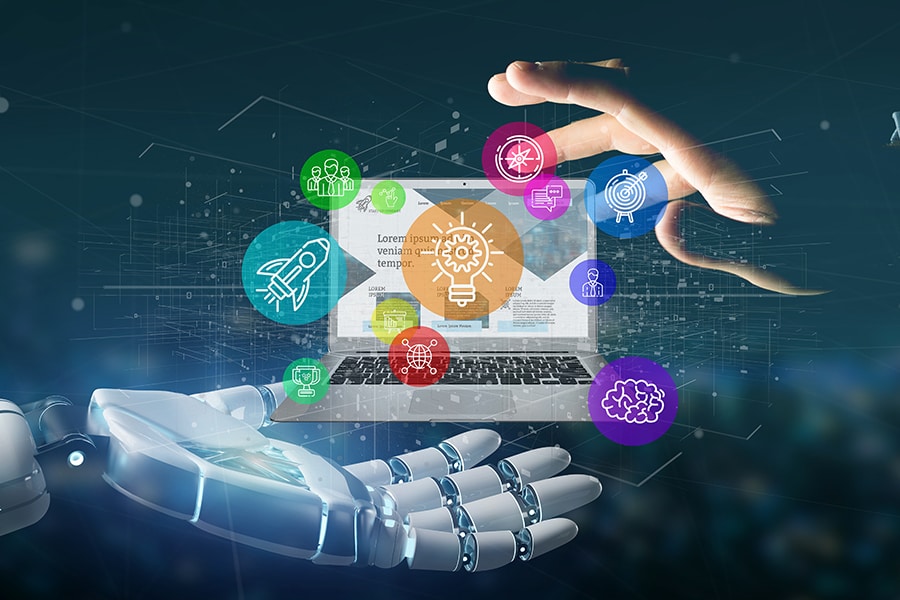2022 – The year change will become the new norm.
As we begin a third calendar year living with the coronavirus, one can say, without a doubt, that the world of consumer marketing has irrevocably changed beyond appreciation.
A digital ecosystem has emerged in its entirety to span information, access, experience, transaction and has gained maturity, investment and scale.
Living in a lockdown profoundly transformed the way we live, work and connect online. I see distinct areas of fast-paced change in 2022 relating to rising consumer expectations, evolving channels of customer engagement and the dominance of technology and data as a driver of strategy.
Everything online, ‘here and now’
Ironically, notwithstanding lockdowns and disruptions, expectations from service delivery and turnaround time went up more than down. No consumer is willing to wait. Everything must be a click away and available at the doorstep. As consumers live online, their expectations from digital experiences have never been higher.
Every brand must think of being a digital-first business. In 2022, a return to normalcy will fuel consumer action but the new modalities of the transaction will persist and become better.
Customer experience will be the key differentiator
Modern marketing was all about building awareness, stoking interest, facilitating decisions. But capabilities across the board grew in a way that any differential advantages based on the product, price, promotion, and place were flattened. Now, positive cumulative experience alone suffices as a discriminator.
Delivering a rich customer experience demands an entirely new way of operating and a wilful digital transformation at each stage. A more agile, collaborative, and customer-focused approach will be required. In 2022, consumers will expect an unprecedented degree of relevance and increasingly personalised customisation. This will call for tailored engagement based on experience. An Amazon-like buying experience will not be an aspiration but a hygiene benchmark.
Get top rating or perish
Reputation and reality have a complex relationship. A brand is a multivalent concept. Every brand is a reputation. Every reputation is a brand. Unfortunately, reputation is never entirely dependent solely on intrinsic worth. It is a social construct subject to the sensitivities and judgements of others. Such judgement is attestable in the form of ratings. Customers are digitally mature and geared towards online research for virtually every purchase decision.
Research by Global WebIndex, reported for October 2021, shows that 57.6 percent of the world"s population uses social media. The average daily usage is 2 hours and 27 minutes and 6.7, is the average number of platforms used, per user, per month. At 5.29 billion unique mobile users, more than two-thirds of the world have access to a mobile phone. Therefore, ratings and external confirmation of information will become a majority norm. In 2022, group verified curation of consumer choice will become a crucial area of digital engagement.
Moving beyond segmentation to hyper-personalisation
Hyper-personalisation is possible and scalable now. It takes segmentation to another level and is a booster for engagement rates and ROI.
The foundation is a profile of the consumer that is always improving. Tools can collect demographics, location, and browsing history to deliver optimal customer experiences in real-time, targeted to their preferences. In 2022, if you don’t have a business-relevant SVOC—Single View of Customer—you should worry about repeat business, brand loyalty, and advocacy. A one-size-fits-all approach isn’t effective in engaging with customers and prospects. AI will be used to provide uniquely personalised campaigns, rather than segment-based CRM marketing.
Authentically inclusive marketing in a cookieless world
Google described the end of third-party cookies as an important step toward greater privacy for web browsers. Apple has pioneered it in April 2021 with iOS update 14.5 and the new consent protocol called App Tracking Transparency which governs and constrains how apps and advertisers can use uniquely identifiable data like device ID to target, measure and optimise campaigns.
Ad tech providers will be unable to accumulate and bring together datasets to target efficiently. Their working data and processing ability will decline in extent, accessibility and value. Ad targeting, buying and optimisation processes will be disturbed and restrained, especially for performance-oriented campaigns and custom audiences. Cookie data gaps will undermine attribution and optimisation.
In 2022, ‘first party data’ will become ‘first prize data’. This is a tectonic shift.
Artificial Intelligence everywhere
Machine learning algorithms are all around us, whether seen in facial recognition, voice assistants, language translation,
robotic process automation. AI has pervaded everything we do and will become recognisably ubiquitous in 2022.
High powered computing, the internet of things, and 5G will make AI an easier to adopt means towards brand excellence.
Fancy tech innovations aside, every company must look at its data strategy for execution at scale. Marcomm will need to become bespoke and fuel a cycle of tailored experiences. In addition, there will be the need for permission marketing given the changed scenario in data privacy and security.
A final word
2022 will hopefully be the first year ‘after Covid’. But, notwithstanding, many existing capabilities will undergo convergence and affect society in a way that is much more than the sum of their parts.
In 2023, customer journeys and personalisation programs may be run by AI algorithms and software applications or bots.
As a brand builder, be mentally ready to compete with a machine.
Shubhranshu Singh is vice president - marketing - Domestic & IB, Tata Motors. Views are personal.

 In 2022, consumers will expect an unprecedented degree of relevance and increasingly personalised customisation Image: Shutterstock
In 2022, consumers will expect an unprecedented degree of relevance and increasingly personalised customisation Image: Shutterstock